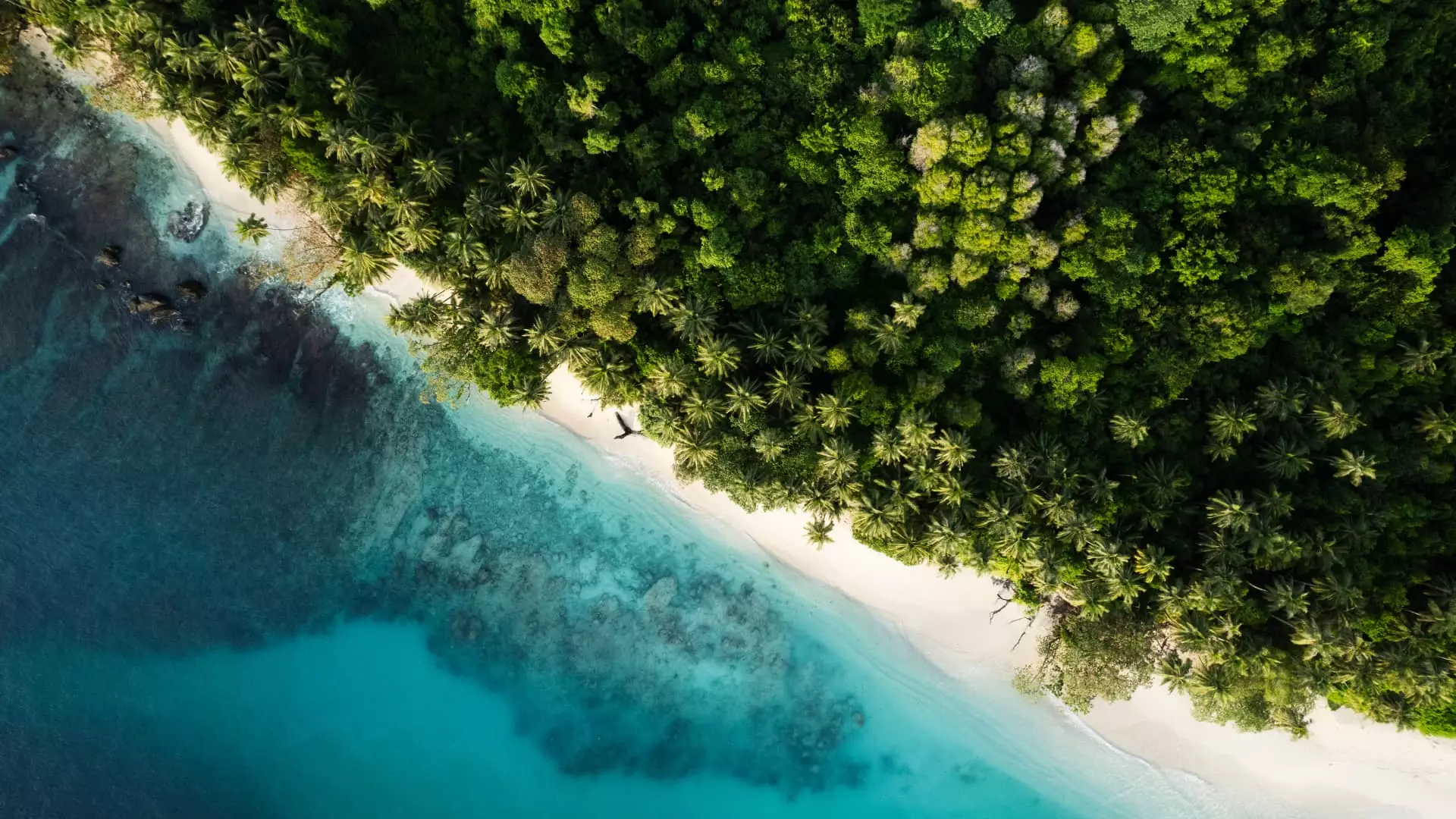When Richard Kvech and his friends first ventured onto Pinang Island four years ago, they stumbled upon a secluded piece of land marked only by a rundown bungalow that bore witness to the infrequent visits of fishermen. Nestled off the western coast of Sumatra, this 50-hectare Indonesian island was untouched, a pristine paradise waiting for its potential to be unlocked. Kvech, together with his companions from the Czech Republic, envisioned an eco-retreat that would not only carve a niche in the travel industry but also respect and preserve the island’s untouched natural beauty. Their journey began with humble accommodations—swinging hammocks and cooking over an open fire—while dreams of transformation filled the air.
The journey of discovery was sparked a year earlier by Tomas Ouhel, who chanced upon Pinang during a conservation project on the nearby Bangkaru Island. His tales of untouched beauty ignited passionate discussions back home, leading to negotiations with the island’s ancestral owners. Eventually, a 50-year lease was signed, formalizing their mission to develop an eco-resort while remaining harmoniously aligned with the environment.
Building with Nature
Utilizing locally sourced materials, the team set to work, embracing methodologies that honored the land. They constructed a principal guest bungalow and established a reliable water supply through well-digging, all while integrating solar panels for sustainable energy. This paradigm of self-sufficiency extended to other essential infrastructures, including staff quarters and communal spaces, all designed to maintain the integrity of the landscape. Each built structure accounted for just a fraction of the island’s expanse, ensuring that the natural surroundings—teeming with bamboo forests, coconut groves, and diverse wildlife—remained largely undisturbed.
Understanding the need for sustainability, the group implemented permaculture practices, cultivating a garden of fruits and vegetables that flourished in the island’s ecosystem. They augmented their efforts with a small chicken farm that provided fresh eggs, all while practicing responsible waste management through composting and recycling initiatives.
Since welcoming their first guests two years ago, the eco-retreat has drawn visitors looking for an immersive experience in nature. Kvech, who transitioned from a career in medical travel coordination, now markets both the resort and its sustainable practices. “We are not just providing a space; we are sharing an experience that fosters a deep connection with nature,” he explained.
As word spread, Pinang Island became a retreat for yogis, surfers, and various creative individuals, all perfectly aligned with the place’s ethos. The resort accommodates small groups, with a capacity of twelve guests sharing communal experiences ideally suited for those searching for tranquility and adventure alike. However, luxury-seekers should temper their expectations, as the island’s offerings lean toward rustic charm rather than opulence.
The pricing structure further defines its exclusivity—$999 per night accommodates eight guests, with options for additional visitors at a supplementary cost. This includes a plethora of activities such as snorkeling, paddleboarding, and fishing, reinforcing the idea that the island is a sanctuary for those seeking an authentic connection with their surroundings.
Though the allure is strong, the path to Pinang Island is filled with logistical challenges. Travellers must endure multiple transfers, including flights and a lengthy boat ride, emphasizing the remoteness of this escape. Particularly concerning was a tragic boating incident in August 2023, where a local vessel capsized during turbulent weather, underscoring the inherent risks of accessing this hidden gem. This incident prompted the resort community to take decisive action, leading to the acquisition of their own boat equipped with advanced safety measures.
The aftermath of the incident prompted a temporary closure of the resort, yet the spirit of progress prevailed. In response, Kvech’s team not only purchased safety-equipped transport but also established the Fifan Foundation to enhance maritime safety training for local captains. Their efforts to change the boat transfer point further reflected their commitment to ensuring safe passage for future guests, affirming their dedication to both safety and community engagement.
Looking toward the future, Kvech hopes to preserve the intimate nature of the resort, emphasizing that it is not intended for mass tourism. “This is an experience for adventurous souls who wish to step away from the chaos of modern life,” he noted. The aim is to offer a sanctuary that fosters personal reconnection with nature while providing a comfortable escape.
As Kvech balances his life between his homeland and Pinang Island, he acknowledges that the realities of island life often defy fantasy. “It’s not always a fairy tale,” he confided, articulating the challenges faced by the team in integrating into the local culture and managing the complexities of their ambitious project. The journey from a desolate isle to a niche eco-retreat illustrates not just the birth of a destination but illuminates the promise of responsible travel that respects both the environment and the local community.

